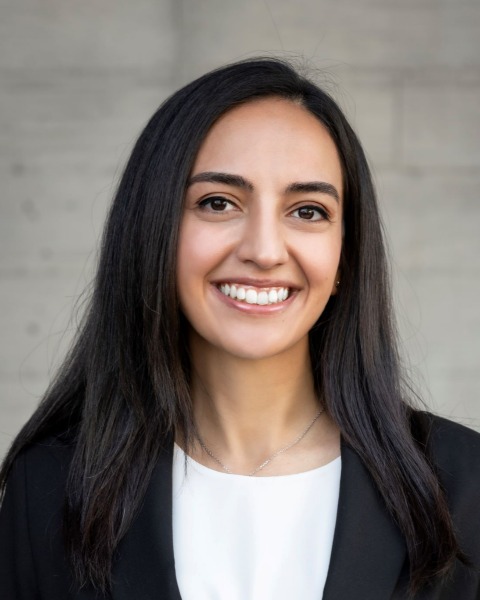Back
Regular Abstract
Impact of COVID-19
Session: Poster Session
9: Perceptions of COVID-19 vaccination in patients with renal cell carcinoma (RCC)
Location: Poster Hall, Board B3
Jasnoor Malhotra, BSc; JoAnn Hsu, BSc; Ramya Muddasani, DO; Luis Meza, MD; Sabrina Salgia, MD; Nazli Dizman, MD; Neal Chawla, MD; Ameish Govindarajan, MD; Alexander Chehrazi-Raffle, MD; Sumanta Pal, MD, FASCO; Daniela Castro, MS; Cristiane Bergerot, PhD; Errol Philip, PhD

Zeynep B. Zengin, MD
Postdoctoral research fellow
City of Hope Comprehensive Cancer Center
Duarte, California, United States
Poster Presenter(s)
Background: Vaccines against COVID-19 are now widely available and play a critical role in protecting those with impaired immune systems, such as patients with cancer. Despite this, little is known about barriers to vaccination and their possible association with anxiety and depression among patients with RCC.
Methods: A REDCap-based survey was conducted in patients with genitourinary malignancies between December 15, 2021 and January 26, 2022. Responses were summarized with descriptive statistics. Further, correlations between concerns and overall anxiety and depression were assessed with the Kruskal-Wallis test.
Results: Out of 110 respondents, 60 (54.1%) had a diagnosis of RCC. Of these, the median age was 63.5 (range 37-83) years, with the majority of male (80.0%), white (90.0%), and well-educated (56.6%). There were 50 patients on active treatment, (immunotherapy: 40.0%, targeted therapy alone: 43.3%). Among respondents, 91.7% received at least one dose of a COVID-19 vaccine (Pfizer: 50%, Moderna: 41.7%) and 61.7% received a booster. Majority of the patients (61.8%) were not hesitant to receive the vaccine but reported that the side effect profile was concerning (41.8%). The most influential factors for getting the vaccine were physician’s opinion (80.0%), published vaccine trial data (34.5%), and personal beliefs (32.7%). Meanwhile, 80% of unvaccinated patients reported that they don’t plan to receive the vaccine in the future due to side effects (80.0%), personal beliefs (60.0%), and published vaccine trial data (60.0%). Further, all unvaccinated patients reported concerns of the vaccine interfering with the treatment. Symptoms of anxiety and depression were present in 14.5% and 18.2% of the respondents, respectively. Symptoms of anxiety was associated with number of concerns (p=0.007).
Conclusions: Despite prevalent concerns around vaccination side effects, most patients with RCC were willing to receive COVID-19 vaccination. Among patients refusing, concern was expressed that vaccines may interfere with cancer treatment.
Methods: A REDCap-based survey was conducted in patients with genitourinary malignancies between December 15, 2021 and January 26, 2022. Responses were summarized with descriptive statistics. Further, correlations between concerns and overall anxiety and depression were assessed with the Kruskal-Wallis test.
Results: Out of 110 respondents, 60 (54.1%) had a diagnosis of RCC. Of these, the median age was 63.5 (range 37-83) years, with the majority of male (80.0%), white (90.0%), and well-educated (56.6%). There were 50 patients on active treatment, (immunotherapy: 40.0%, targeted therapy alone: 43.3%). Among respondents, 91.7% received at least one dose of a COVID-19 vaccine (Pfizer: 50%, Moderna: 41.7%) and 61.7% received a booster. Majority of the patients (61.8%) were not hesitant to receive the vaccine but reported that the side effect profile was concerning (41.8%). The most influential factors for getting the vaccine were physician’s opinion (80.0%), published vaccine trial data (34.5%), and personal beliefs (32.7%). Meanwhile, 80% of unvaccinated patients reported that they don’t plan to receive the vaccine in the future due to side effects (80.0%), personal beliefs (60.0%), and published vaccine trial data (60.0%). Further, all unvaccinated patients reported concerns of the vaccine interfering with the treatment. Symptoms of anxiety and depression were present in 14.5% and 18.2% of the respondents, respectively. Symptoms of anxiety was associated with number of concerns (p=0.007).
Conclusions: Despite prevalent concerns around vaccination side effects, most patients with RCC were willing to receive COVID-19 vaccination. Among patients refusing, concern was expressed that vaccines may interfere with cancer treatment.
